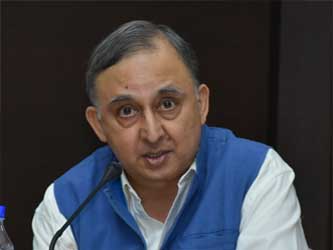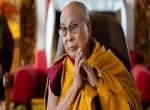Whatever be the constitutional position, one thing is clear that in the final analysis, political sovereignty in Pakistan resides … where the coercive power resides… which is the ultimate authority in the decision-making process in Pakistan. They decide when to abrogate the Constitution; when it should be held in abeyance; when elected governments should be sacked; and when democracy should be given a chance. Behind the scenes, they also decide whether an elected prime minister shall live or die.2
—Roedad Khan
The battle-lines have been drawn in Pakistan between a combined Opposition on the one side and the Establishment and government on the other. Pushed to the wall by a spate of accountability cases, Pakistan Muslim League Nawaz (PML-N) leader Nawaz Sharif in several speeches since 20 September 2020 has strongly criticized the establishment for involvement in politics. He has accused it for being ‘a state above the state,’ and described the Opposition’s struggle as being against a ‘parallel state’ that had imposed an incapable person on the country through a rigged election process. The Opposition has formed an alliance called the Pakistan Democratic Movement (PDM) whose first leader is Maulana Fazlur Rehman of the Jamiat Ulema-e-Islam (JUI-F). While Nawaz and the PMLN have a large vote bank in Punjab, the Maulana is expected to pitch in with street power of his Deobandi religious cadres, especially in Khyber Pakhtunkhwa and Balochistan. Already animpressive alliance, in case the PPP remains committed, then the addition of its Sindh vote bank would be formidable.
The Establishment and government have retaliated with their usual repertoire of tricks- arrests of Opposition leaders, filing of cases, trying to create splits in parties and between parties and so on. PM Imran Khan and his ministers have reacted by accusing Sharif of being anti-Pakistan, of serving Indian interests and the Opposition wanting to create a rift between the government and the armed forces.
In such a heated atmosphere, it would be useful to step back and look at some historical insights and into the background of the distorted civil-military relations in Pakistan.
In most democracies, civil–military relations are subject to laid-down guidelines and protocol, with the armed forces being responsible to the executive. In Pakistan’s hybrid democracy, however, civil–military relations have been the central issue in governance with the army dominating the civilian governments.
Such a state of affairs could never have been imagined when Pakistan had been created. At the reception given by Jinnah on 14 August 1947 Asghar Khan (later Air Marshal) and Akbar Khan (later Maj. Gen.) complained that they were disappointed that the higher posts in the armed forces had been given to British officers who still controlled their destiny. According to Asghar Khan, ‘the Quaid who had been listening patiently raised his finger and said, “Never forget that you are the servants of the state. You do not make policy. It is we, the people’s representatives, who decide how the country is to be run. Your job is only to obey the decision of your civilian masters.”’3
Could any politician, including current PM Imran Khan have the temerity to say this to the army chief today? The answer has to be a resounding no. Hence, democratic governance in Pakistan instead of being a tripod of the executive, legislature and judiciary looks more like a garden umbrella in which the army is the central pole around which the other organs of the state revolve. Consequently, civilian governments in Pakistan have invariably taken a backseat on crucial issues like national security objectives and strategies to implement them.
The key to the army’s dominance was the advice given byMaj. Gen. Sher Ali Khan Pataudi to Gen. Yahya Khan in 1969 that the army’s ability to rule lay in its being perceived by the people as ‘amythical entity, a magical force, that would succour them in times of need when all else failed … the army was the final guarantor of Pakistan and its well-being.’4 Every military ruler has made this the cornerstone of his policy. The generals know that they cannot allow the army’s charisma to fade, even if it means sacrificing a government or a leader.
In its essentials, the tussle between the civil and military authorities in Pakistan is not just about power and supremacy. It is about the contempt that the military holds the politicians in and about their belief that left to themselves, the political class will destroy Pakistan one way or the other, or, at the minimum, compromise its vital security interests.
A few examples will suffice. A telling comment were the instructions given by the then commander-in-chief Ayub Khan to Pakistan’s first military attaché in Washington DC, Brigadier Ghulam Gillani, in 1952, barely five years after Pakistan was created. He was told that his main task was to procure military equipment from the Pentagon, and he need not take either the ambassador or the Foreign Office into confidence because in his view,‘these civilians cannot be trusted with such sensitive matters of national security’.5
Another example is what Gen. K.M. Arif wrote about Zia-ul-Haq: ‘Like many other soldiers, he had contempt for politicians; however, his dislike of politicians … was rooted in a knowledge of the seamier aspects of their personal and public behaviour … Zia was convinced that most politicians had a price; and experience confirmed his opinion that only a few were prepared to rise above their petty personal ambitions.’5
Lt Gen. Hamid Gul probably expressed the army’s sentiments well when he told Iqbal Akhund, ‘[A] democratic government by its very nature tended to compromise, and political compromise might sometime run counter to the national interest. So … there must be some means of defining and promoting the national interest, some means of rising above political partisanship and compromise on issues of high policy – such as
Afghanistan, Kashmir, or relations with India.’6
Contempt for politicians apart, the army, since the inception of Pakistan, has not really believed that democracy was suited to Pakistan. The key element in the ‘Rawalpindi Conspiracy Case’ hatched in 1949–51 by Maj. Gen. Akbar Khan was his open scorn for politicians ‘whom he blasted for incompetence, indecision and corruption’.7 Seven years later, Gen. Ayub Khan stated: ‘We must understand that democracy cannot work in a hot climate. To have democracy we must have a cold climate like Britain.’8
Echoing Ayub but using Islam instead of climate, Zia at a press conference stated: ‘Our present political edifice is based on the secular democratic system of the West, which has no place in Islam … In Pakistan neither anarchy nor Westernism will work.
This country was created in the name of Islam and in Islam there is no provision for Western-type elections.’9 Musharraf gave his own twist by stating, ‘Our democracy is not mature in the country. I think many politicians do not behave in a mature manner … I have a belief that democracy has to be modified to an environment; that is the reason of my retaining the power of dismissing an assembly.’10
Democracy apart, one crucial issue that would come to the fore in the weeks ahead would be the behavior of the army should the religious cadres of the Maulana hit the streets. While the army’s discipline and chain of command has held over the decades, it is useful to remember that there have been several instances where the army has refused to open fire on and under the influence of Islamists. For example, in the 1977 Pakistan National Alliance (PNA) agitation, which was dominated by the religious parties and led to Bhutto’s ouster, the army declined to shoot on protestors in Lahore.11 On 26 September 1995, Maj. Gen. Zahirul Islam Abbasi, along with thirty-five officers, was arrested for plotting to assassinate the corps commanders, during a conference, as well as the cabinet.12 Between 2004 and 2007, there were numerous instances of mass desertions and refusal to fight in the Frontier Corp units deployed to target militants in the then Federally Administered Tribal Areas (FATA).13 There were two attempts to assassinate Gen. Pervez Musharraf in which armed forces personnel were involved.
In May 2011 the army arrested Brig. Ali Khan and four other officers for links with the UK-based Hizb-ut-Tahrir (HT) which believes in establishing an ‘Islamic Caliphate’. Also, the attack onthe Mehran Naval base (22 May 2011) and the earlier 10 October 2009 attack on the GHQ revealed that the attackers had inside knowledge and knew where the blind spots were. In May 2016, a naval tribunal sentenced five officers to death in the Karachi Naval Dockyard attack case of 6 September 2014. The five were charged with having links with the Islamic State, mutiny, hatching a conspiracy and carrying weapons in the dockyard.14
Such incidents can be termed as isolated and stray, but it would be a mistake to dismiss them out of hand. They are reflective of the weakening of discipline on account of Islamisation of the army that can grow given the trajectory of radicalization in the country. It would certainly raise questions about how the army would deal with the Maulana if push came to shove.
The conundrum faced by the army is that if it does not interfere in the election process, in the formation of governments and allows the civilians space to govern, the government will want to control matters that the armyhas come to believe is its preserve like defence and foreign policies. This would be anathema since the army does not trust the civilians to do the right thing; hence its constant efforts to engineer and ‘select’ the ‘right’ kind of government, like that of Imran Khan. However, without strengthening an independent electoral system and civil governments, without giving them space to govern, the country will continue face confrontations like the one that could possibly be brewing. It is precisely this meddling in civilian space and in engineering governments that the Opposition has come together to fight. However, as history indicates, the Opposition would have a mountain to climb to push the army away from its domination of the civilian space. .
Ultimately, however, Pakistan has paid a huge cost for the sake of its army’s domestic ambitions. The army would do well to heed the warning of the first C-in-C of the Indian army after partition: ‘No army which concerns itself with politics is ever of any value. Its discipline is poor, its morale is rotten and its reliability and efficiency is [sic] bound to be of the lowest order. You only have to look at certain foreign armies which are constantly mixed up in politics to realize the truth of what I have to say15—Sir Roy Bucher
Endnotes
- Some sections of the article have been excerpted from the author’s book- Pakistan: Courting the Abyss, NOIDA, Harper Collins India, 2016
- Roedad Khan, Pakistan: A Dream Gone Sour, Karachi: OUP, 1997, p. 179.
- M. Asghar Khan, We’ve Learnt Nothing from History, Pakistan: Politics & Military Power, Karachi: OUP, 2005, p. 3.
- Roedad Khan, ‘The Role of the Military-Bureaucratic Oligarchy’, Dawn, 25 August 2001, cited in Husain Haqqani, Pakistan Between Mosque and Military, Lahore: Vanguard Books, 2005, p. 54.
- Mushahid Hussain and Akmal Hussain, Pakistan: Problems of Governance, New Delhi: Konark Publishers, 1993, p. 30.
- Gen K.M. Arif, Working With Zia, Karachi: OUP, 1995, p. x.
- Iqbal Akhund, Trial and Error The Advent and Eclipse of Benazir Bhutto, Karachi, OUP, 2000 pp. 137–38.
- Ayesha Jalal, The Struggle for Pakistan, A Muslim Homeland & Global Politics, Massachusetts: Harvard University Press, 2014, p. 79.
- Tariq Ali, The Clash of Fundamentalisms – Crusades, Jihads And Modernity, New York: Verso, 2002, p. 183.
- Daily Telegraph, 18 October 1979, cited in Tariq Ali, Can Pakistan Survive: The Death of a State, London: Penguin Books, 1983 p. 138.
- ‘Musharraf Favours Tailored Democracy’, The Nation, 16 June 2003, cited in International Crisis Group ‘Unfulfilled Promises: Pakistan’s Failure to Tackle Extremism’ 16 January 2004
- Husain Haqqani, Pakistan Between Mosque and Military, Lahore: Vanguard Books, 2005, p.122.
- Brian Cloughley, A History of the Pakistan Army: Wars and Insurrections, Karachi: OUP, 1999, p. 355.
- Anatol Lieven, Pakistan, A hard Country, London: Penguin Books, 2012 pp. 175–76
- Malik Asad, ‘Five “IS-linked” navy officers get death sentence in dockyard attack case’, Dawn, 24 May, 2016.
.
.
(The paper is the author’s individual scholastic articulation. The author certifies that the article/paper is original in content, unpublished and it has not been submitted for publication/web upload elsewhere, and that the facts and figures quoted are duly referenced, as needed, and are believed to be correct). (The paper does not necessarily represent the organisational stance... More >>
Image Source: https://i0.wp.com/www.askedon.com/wp-content/uploads/2020/07/civil-military-relations-in-pakistan.jpg?fit=700%2C300&ssl=1











Post new comment